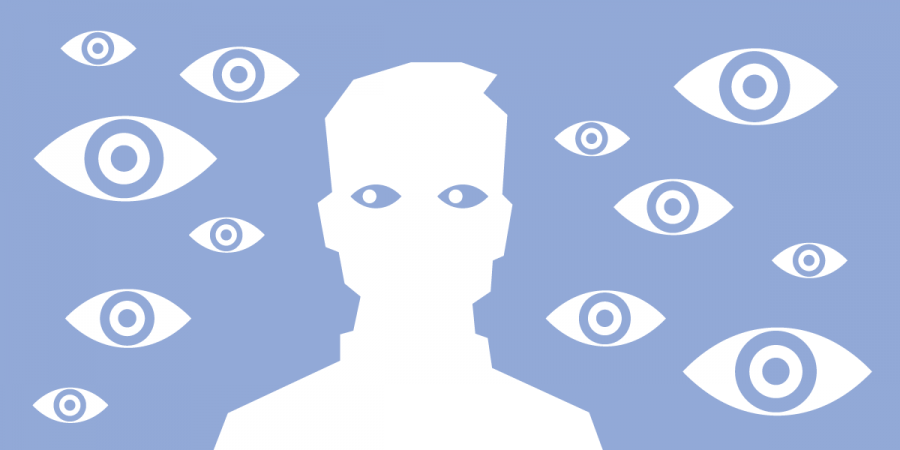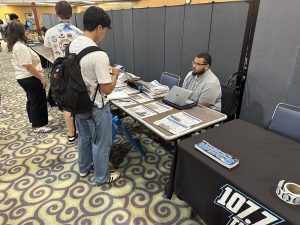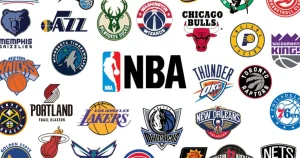Central Students React To Facebook Data Breach
Electronic Frontier Foundation
Facebook’s security breaches have left Central Connecticut students feeling uneasy.
October 26, 2018
On Oct. 12, Facebook released a statement detailing a vast data breach that meant 30 million accounts had been hacked. Peoples’ names, dates of birth, username, passwords, places of employment and other information were accessed and stolen.
“It’s very concerning that it’s become easier and easier to steal people’s information,” Emily DeNote, a junior and business management major, said. “So many people put so much information on Facebook and if people are able to steal that and recreate a new account, they can post whatever they want, and others will think it’s you. That can be damaging to people’s social lives or their careers.”
“Even though you put this information for people to see, there still should be an element of privacy that is held. Things that are supposed to be private or for only certain people to see should truly be private and protected by Facebook,” DeNote went on.
How did this happen? Back in September, the hackers involved in the data breach exploited what Facebook called “vulnerability in Facebook’s code” in the “View As” function. The View As feature allows users to view their profile as if they are someone else. This allowed the hackers to highjack a user’s access token, a kind of key that allows users to stay logged in.
The brief released by Facebook states that the hackers had access to around 400,000 accounts which were all linked as friends. Using this, they were able to steal millions of access tokens. Facebook was able to determine how many accounts were accessed and what kind of information was stolen.
“I’m in the middle of the situation. I don’t like that they track our data, but they make it known that they are doing so. I don’t like my data to be stolen than to be sold. Makes me feel unsafe,” senior secondary education major Marian Jainchill stated.
According to Facebook, 15 million people had their names and contact information stolen. For 14 million people, things are much worse; Facebook said their names and contact information were stolen along with their gender, locale, language, relationship status, hometown, current city, birthdate, device information, education, work, the last ten places they were tagged in or checked into, website, people or pages they follow and the 15 most recent searches. Finally, one million people had no information accessed.
“It’s a terrible thing,” Dara Miller, a sophomore education major, said.
Marie LaMarre, an elementary education earth science major and a senior, found the situation to be frustrating, as she personally knows friends who’ve been affected.
“I know so many people who have a Facebook account that has been hacked, and the process that they had to go through to get their account back was horrible and irritating,” LaMarre said.
“I believe with the advancements with technology and with security and with being in the age of social media and technology. The security of these sites should be updated and enforced,” she continued.
It can be argued that the students are right to be concerned and scared. In an age where social media is a crucial part of society’s everyday lives, having personal data accessed and stolen is understandably disconcerting to some. Is prevention of data breaches possible? How do we protect our data online?
The unfortunate truth is that no system is perfect. Even with a team of hundreds of computer scientists and cybersecurity professionals, things get overlooked. System weaknesses exist, and if a person is determined enough, those weaknesses can be found and exploited.
But in a world of ever-increasing interconnectedness, cyber security is more important than ever. To prevent data breaches, companies hire what are known as “white hat hackers.” These individuals are tasked with breaking into the company’s servers by finding exploits in the code. This is one way that security is bolstered.
For an individual to protect themselves online, users should be careful to never open emails that are not from a trusted source. Spam email is one of the key transmission vectors of computer viruses.
Passwords are another way to protect oneself online. In a Ted Talk, Professor Lorrie Faith Cranor, a computer science and engineering researcher at Carnegie Mellon University, talks about passwords.
“We found that the long passwords were actually pretty strong, and the complex passwords were pretty strong too,” Cranor said on a study examining 5000 passwords. “However, when we looked at the survey data, we saw that people were really frustrated by the very complex password.”






